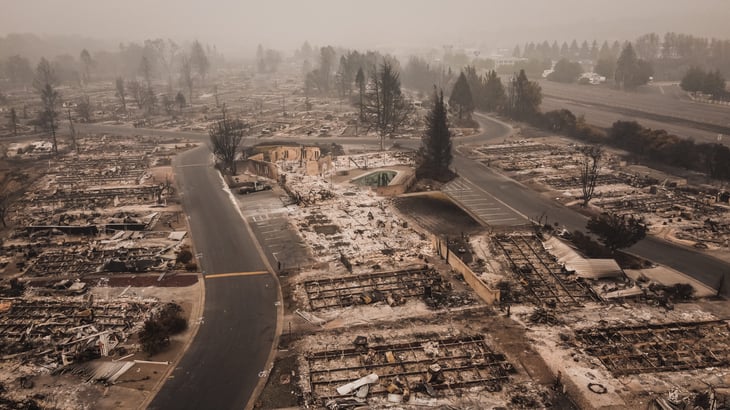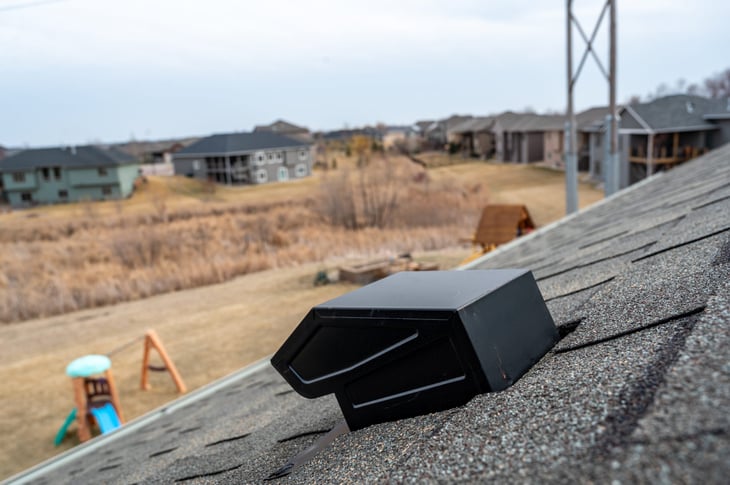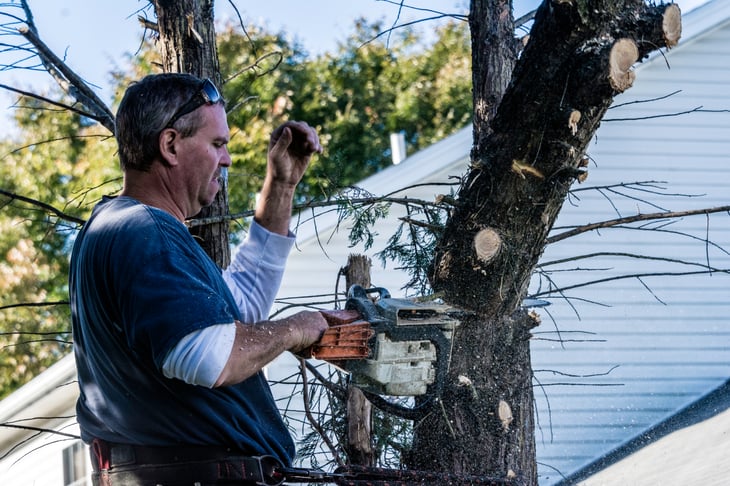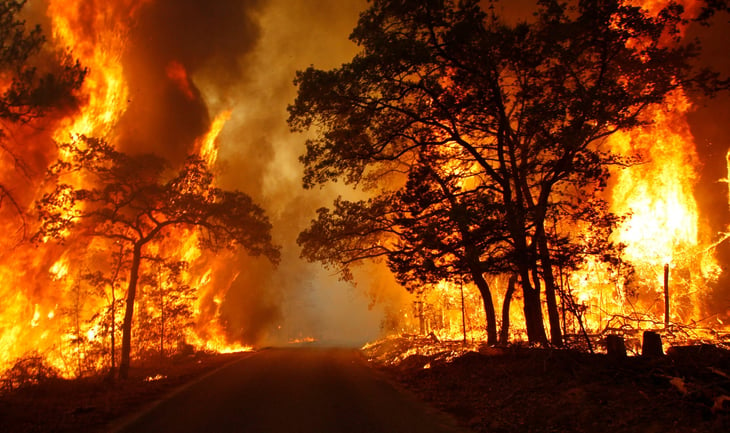
The Canadian wildfires causing smoke to blanket the U.S. East Coast are an important reminder for the need for homeowners to take precautions to protect their properties.
For most people, the purchase of a home is the greatest single investment they’ll ever make. In addition to providing shelter, a home can be used to create a financial legacy for children. It also can become an asset that can be borrowed against, if the owner needs an infusion of cash.
Even if you’re well-insured, the loss of a home is costly in terms of the time it will take to rebuild it, the inconvenience of having to live in temporary housing, and the loss of personal items that never can be replaced. Here are several steps you can take to protect your home and its contents from wildfires.
1. Investigate the chance of wildfires before you buy a home

Wildfires have become more common around crowded urban areas, where new housing has been pushed into suburbs that abut undeveloped wild lands. Houses today often are built close together, reflecting rising real estate prices. That means fires may be able to more quickly spread within housing subdivisions.
The easiest way to avoid wildfires is not to buy homes in communities that are prone to such hazards. You can tell your real estate agent about your concerns and ask not to be shown homes in areas that are vulnerable to wildfires. Online research will tell you if the communities you’re interested in have experienced wildfires in years past. You can research fire risk at WildfireRisk.org, a website operated by the USDA Forest Service.
2. Make sure you have adequate homeowners insurance

It’s always important to have adequate homeowners insurance. Wildfires are a reminder of how quickly and easily homes can be destroyed.
“Good insurance is your disaster recovery lifeline,” says Sean Scott, author of “The Red Guide to Recovery.” “Most people have their life savings invested in the equity of their home, and if the home is lost and they don’t have enough to rebuild, they can lose the home to foreclosure and be forced to start over somewhere else.”
The Office of the Washington State Insurance Commissioner makes the following recommendations for getting an adequate homeowners policy:
- Make sure your policy amount is large enough to cover the costs of repairing or replacing your home and its contents.
- Because circumstances change, check your coverage regularly to make sure it remains adequate.
- Consider purchasing special coverage to protect valuables that may have limited coverage under your basic policy. These valuables may include jewelry, artwork and collectibles.
- Prepare a household inventory. This will help you determine whether you need more insurance coverage. The inventory also can serve as a record of what you own if you ever have to file an insurance claim. Check out: “6 Tips to Creating a Home Inventory.”
3. Secure your home’s vent openings

Many people think homes typically are destroyed by moving walls of fire. According to the University of Nevada Reno Extension, an estimated 90% of house fires during wildfires are caused by burning embers. Embers can be carried long distances by wind. They can enter an attic through a vent and ignite construction materials.
If you make sure vents are properly screened, you’ll greatly reduce the risk of a fire. You also can buy vent covers that are designed to prevent an intrusion by burning embers.
4. Create a defensible space around your home

If you already live in an area where wildfires are a hazard, you can increase your home’s chances of surviving a blaze by creating a defensible space around it. That means clearing away vegetation that could become fuel for a fire. Clearing to 100 feet from the home dramatically increases the chances of surviving a wildfire, according to the California Department of Forestry and Fire Protection.
“Cut back overhanging trees, get rid of dry and dead brush,” said Scott W. Johnson, an insurance broker in California’s Marin County. “Inquire about your legal right and ability to cut back brush around your home on public lands.”
5. Make your home fire-resistant

When you shop for a home, consider whether the building materials are combustible. If you buy a fire-resistant home, you won’t have to face the prospect of one day having to replace the exterior with noncombustible materials or treat the home with fire-retardant chemicals to improve fire protection.
The National Interagency Fire Center recommends such building materials as aluminum, brick, tile, sheet iron, slate or stone. Other things you can do to make your home fire-resistant include:
- Removing debris and leaves from roof surfaces and gutters
- Removing any part of a tree that is within 10 feet of the home
- Storing gasoline in an approved safety can, away from occupied structures
- Keeping all combustibles, such as wooden objects and firewood, away from structures
6. Have an evacuation plan

No one likes to abandon their home, but people who stay behind when their neighborhood is evacuated for a wildfire endanger themselves and the firefighters who try to rescue them. Whether you need to evacuate because of a wildfire or because of other natural disasters, leave your home whenever you are asked to do so by authorities or whenever you feel threatened.
“Wildfires can move in excess of 60 miles an hour, and a lot of people have lost their lives by being overrun by fast-moving fires,” said Johnson.
Your evacuation will go more smoothly if you create a plan and share it with other members of your household. Be sure to locate and secure your pets if you’re threatened by a wildfire, so you’ll be able to take them with you when it’s time to leave.
The Federal Emergency Management Agency offers tips for a successful emergency evacuation, including:
- Keep a full tank of gas in your car if an evacuation seems likely.
- Make transportation arrangements with friends or your local government if you don’t have a car.
- Take a battery-powered radio so you can listen to breaking news and local evacuation instructions.
- Follow recommended evacuation routes to stay safe as you depart the area.





Add a Comment
Our Policy: We welcome relevant and respectful comments in order to foster healthy and informative discussions. All other comments may be removed. Comments with links are automatically held for moderation.